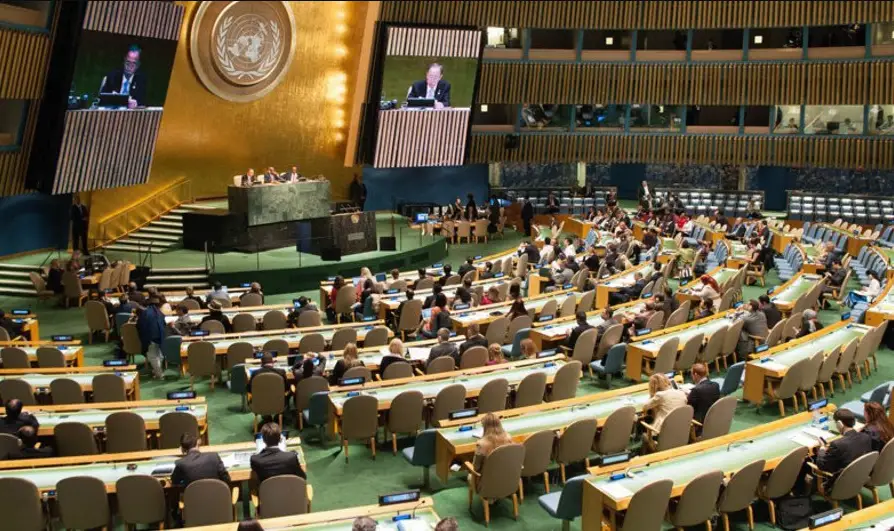From September 9 to 28, New York opened its doors to welcome presidents, ministers, and foreign affairs officials from all United Nations member states. Latin America presented a kaleidoscope of messages, themes, and dispositions before the microphones of the General Assembly. Each nation defended its ideological values and, as a sovereign state and member of a highly interconnected world, expressed some of its concerns and aspirations. The three central themes were, undoubtedly, the condemnation of the war in Gaza (with some references to Ukraine), the complex climate crisis, and the need to reform the internal structure of the United Nations. Likewise, several states voiced concerns about migration, organized crime, and the risks associated with artificial intelligence.
The main focus of Latin American countries at the Assembly
Most countries in the region pointed out the world’s inaction or passivity in the face of the war in Gaza. Beyond the varying degrees of support for either Israel or Palestine—reflected in the choice of words and the mention or omission of certain terms—it was clear that Latin America is aware of the atrocities and suffering endured by thousands of victims of this war. The collective call for peace—an original and fundamental pillar of the UN—was repeatedly emphasized.
The urgency to act on climate change was another key theme. Countries such as Colombia, Costa Rica, Guatemala, Honduras, Peru, the Dominican Republic, and Cuba emphasized shared responsibility and the need to secure climate financing. Some states even explicitly highlighted their own efforts to combat this global challenge.
The “architecture” of the UN also stood out among the most debated topics at the Assembly, particularly under the UN80 initiative. Its main promoter, UN Secretary-General António Guterres, proposed last March to enhance internal efficiency, reduce bureaucracy, review the implementation of mandates, and carry out structural reforms in UN programs.
Panamanian President José Raúl Mulino underscored the duty to update the architecture of multilateral governance and called for a comprehensive reform “to ensure that the Security Council becomes more effective; the General Assembly, more representative; the specialized agencies, more inclusive; and, above all, to reduce bureaucracy.” Peru’s representative expressed support for UN reform with the goal of strengthening multilateralism, a stance echoed by Cuba. Javier Milei, aligning with former President Donald Trump’s argument, spoke of the “hypertrophy of inefficient administrations” and outlined his ideal plan to return to the UN’s original foundation: closing ineffective programs and conditioning UN funding on measurable results.
The representatives of Paraguay, Honduras, and Bolivia placed particular emphasis on removing the veto power of the five permanent members of the Security Council. Similarly, Dominican Republic President Luis Abinader declared that “the world cannot continue being a blueprint drawn by a handful of architects and inhabited by millions of tenants.” Thus, Latin America made it clear that it is ready to push for internal reforms within the UN aimed at strengthening its efficiency and optimizing its operation.
Fundamental issues that received less attention
Another issue raised at the Assembly was drug trafficking and international organized crime. Colombia, in particular, reproached Trump for attacking alleged “narco-boats” in the Caribbean Sea last month “without any form of authority.” The country also firmly stated that the true drug traffickers are not in the Caribbean boats but in the great cities of the world (hidden among luxury), and urged the United States to focus on its own problems, such as the fentanyl crisis.
Another topic discussed—but without the emphasis it deserves—was the development and regulation of artificial intelligence (AI). Within the current digital revolution, there was a noticeable lack of deeper analysis of AI’s ethical, social, and political implications for the global community. Costa Rica’s representative was one of the few Latin American leaders to highlight the dangers of mass disinformation and the need for measures against potential cyberattacks (with technological weapons) capable of paralyzing critical infrastructure.
Outside the Assembly, Colombian President Gustavo Petro’s participation in a protest against the genocide in Palestine drew attention, prompting Donald Trump to revoke his visa. Meanwhile, El Salvador’s President Nayib Bukele chose not to attend the meeting at all, calling his presence “useless” and a waste of time.
This is but a glimpse of the concerns, proposals, and positions shared by Latin American leaders in the face of the challenges of this interconnected world—captured in the words of Guatemalan President Bernardo Arévalo: “This organization was not created to take humanity to heaven, but to save humanity from hell.”














